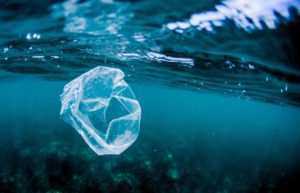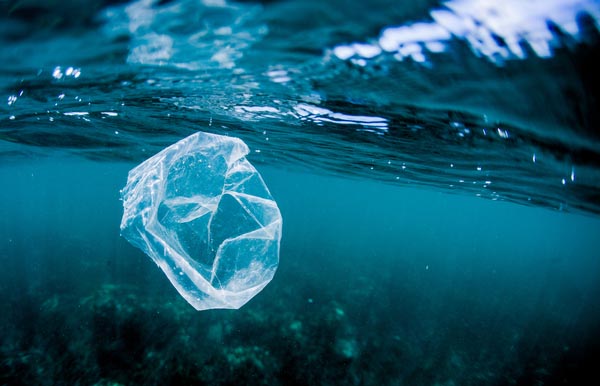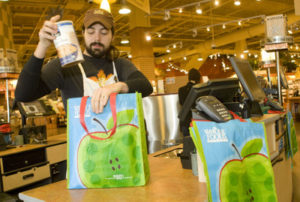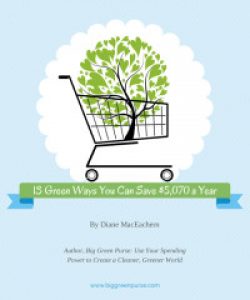 Last week, the County Council for Montgomery County, MD, where I live, finally voted to start charging consumers a nickel for each plastic or paper single-use bag they take at the check-out counter.
Last week, the County Council for Montgomery County, MD, where I live, finally voted to start charging consumers a nickel for each plastic or paper single-use bag they take at the check-out counter.
The new environmental law, which goes into effect January 1, 2012, is designed to help get rid of the billions of horrible, nasty, throwaway bags that waste resources, clog waterways, and kill wildlife.
Throwaway bags are one of those inventions that never should have seen the light of day. According to Pati Robinson from The Cleaner Earth Project, in 2010 consumers worldwide used over 1
trillion throwaway plastic bags. Because the bags don’t biodegrade, they cause serious environmental problems. When they get loose, they end up polluting rivers, streams and oceans, where animals
mistake them for food and die. In fact, scientists have found that fish living in the Pacific Ocean eat more plastic than plankton! Wildlife also die when they get tangled in plastic and can’t break free.
Plus, plastic bags waste oil. An estimated 12 million barrels of oil are required to make the nearly 100 billion single use plastic bags used every year in the U.S. alone, says Cleaner Earth.
Then there’s the fright factor. Plastic bags are downright ugly when they get caught in trees or blow along the highway like synthetic tumbleweed.
For years, municipalities the world over mounted campaigns to educate people about the harm plastic bags cause while trying to motivate consumers to use reusable bags, to no avail. Then someone smart hit on the idea to charge shoppers for every plastic bag they used.
Today, cities that require retailers to charge as little as a nickel for each bag a consumer takes are finding plastic bag use plummeting. In nearby Washington, D.C., disposable plastic bags used to make up 47% of the trash found in the Anacostia river basin. The Anacostia River feeds right into the Potomac, which feeds into the Chesapeake Bay, which feeds into the Atlantic Ocean. Conceivably, a bag thrown on the sidewalk in D.C. could end up in a sea gull’s belly in no time at all.
In January 2010, a nickel fee was placed on single-use plastic bags. In just six months, bag use decreased by 65%, reducing the total number of bags per month to 3.3 million, down from 22.5 million per month prior to the fee, reported the Washington Post.
Now, a nickel is not a lot of money. It’s just five pennies. Pretty much anyone who has bought enough stuff to need a bag can afford to pay for it.
Yet human nature being what it is, people seem to hate paying “extra” for something they used to get for free. I’ve stood in line at a cash register in D.C. and watched people fill their arms to
overflowing with their purchases rather then cough up a measly five cents to put it in a bag.
Stupid?
Nope. Brilliant!
Other cities are looking equally environmentally savvy. Brownsville,Texas, is charging people an extra dollar for each transaction that requires a disposable plastic bag. Why?
San Francisco started the trend in the U.S. in 2007. The result has been a 50 percent drop in plastic bag litter on the streets since the ban took effect. Several other California cities, including Palo Alto, Malibu, and Fairfax, have since followed suit. On the east coast, North Carolina banned single-use plastic and non-recyclable bags last year in the Outer Banks. Retailers like Ikea and Apple no longer give out free bags in their U.S. stores, either. Across the pond, British retailer Marks and Spencer (M&S), has seen an 80% reduction in the use of disposable plastic shopping bags since introducing a charge for them nearly a year ago. The company reports that the number of bags
taken over the last year has fallen from 460 million a year to 80 million.
This is such a simple solution, why doesn’t the entire U.S. adopt the policy? We wouldn’t be alone. India and China have already banned single use plastic bags outright. Ireland introduced a plastic bag tax in 2002 that cut consumption by 90%. Canada’s 2003 plastic bag tax has inspired 95% of consumers there to supply their own sustainable bags when they shop.
When’s the last time anyone ever got so much for a nickel?
GET REUSABLE BAGS!
Every grocery store sells durable, reusable bags for $.99. Or take a look at the fashionable bags we sell in our store.














7 thoughts on “My County Finally Did It! What About Yours? Our New Plastic Bag “Tax.””
That is awesome! We have had that “tax” for about 3 years here. I am still shocked by the number of people who don’t care and still use (and pay for) the plastic bags.
Charging for bags seems to reduce their consumption in most places. Maybe your city needs to charge more!
That is great! I am still shocked by the number of people who don’t care and still use (and pay for) the plastic bags. Charging for bags seems to reduce their consumption in most places.
Yes, charging for bags creates a disincentive to use them for most people. I also try to encourage people to use them by “wrapping” holiday gifts in them.
It’s nice that stores are offering the reusable bags, but it’s even nicer when we can get them for free, like when companies give them away to customers.
Sounds like a very sustainable solution. I saw several malls where they give away re-usable fiber bags for shopping.
it’s cool article here wish you keep wrtitngbecause i really like your idea and your style of talking about soemthing
http://netbookpascher.org/netbook-pas-cher